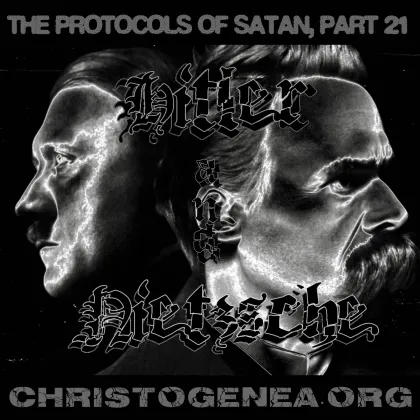Christian Identity and Social Media – a glimpse into the challenges we meet on Facebook
 The notes to this program have now been posted at the new Christogenea Forum under the title Christian Identity and Social Media – a glimpse into the challenges we meet on Facebook
The notes to this program have now been posted at the new Christogenea Forum under the title Christian Identity and Social Media – a glimpse into the challenges we meet on Facebook
If our remarks in this program upset anyone, it was our intent to do so and we do not apologize.











 Please click here for our mailing list sign-up page.
Please click here for our mailing list sign-up page.








Recent comments